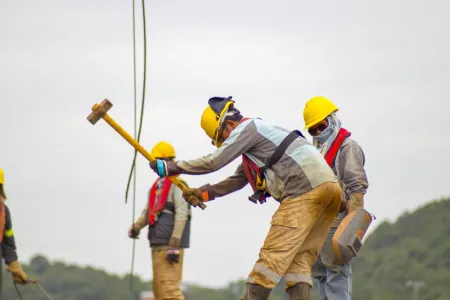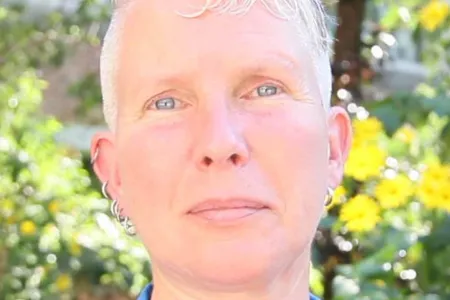Displaying results 61 - 70 of 1072

Benjamin Gagnon Chainey: The Challenges of Professionalism for Today’s – and Yesterday’s – Medical Youth
How old should a doctor be? To answer this question, 2017 Foundation scholar Benjamin Gagnon Chainey took part in a written roundtable co-authored with Anna Fenton-Hathaway and Jordan Babando and published in Medical and Health Humanities: A Department Without Walls on 13 April 2018. Together, they developed a sociocultural and philosophical reflection on age, ageism, and the intergenerational tensions that are at the heart of contemporary medical practice. In the third and last part of the roundtable, entitled "The Challenges of Professionalism for Today’s – and Yesterday’s – Medical Youth," Gagnon Chainey explored the tensions between techno-scientific expertise and human experience in light of Schopenhauer's work.
Benjamin Gagnon Chainey is a 2017 Foundation scholar and a doctoral candidate in French-language literature at Université de Montréal and Université Paris 7. Read his contribution to the roundtable here.
Benjamin Gagnon Chainey is a 2017 Foundation scholar and a doctoral candidate in French-language literature at Université de Montréal and Université Paris 7. Read his contribution to the roundtable here.

Caroline Lieffers: The Panama Canal’s Forgotten Casualties
The construction of the Panama Canal employed more than 40,000 labourers, of which at least 5,609 were killed and hundreds, if not thousands, were permanently injured on the job. In an article published on 16 April 2018 by The Conversation Canada, 2015 Foundation scholar Caroline Lieffers exposed the “horrifying conditions” of the canal’s construction, which all too often remain masked behind the United States’s celebratory and philanthropic rhetoric. Caroline concluded that “for the dream of moving profitable goods and military might through a reluctant landscape,” blood was shed, bodies were maimed, and too many labourers were left uncompensated for their losses.
Caroline Lieffers is a 2015 Foundation scholar and a doctoral candidate in the history of science and medicine at Yale University. Read her article here.
Caroline Lieffers is a 2015 Foundation scholar and a doctoral candidate in the history of science and medicine at Yale University. Read her article here.

Ido Katri: Protecting Transgender Inmates from Administrative Segregation
On 17 April 2018, the Israel Prison Service announced it would no longer keep transgender inmates in isolation. The new policy was announced after Doreen Bilia, a transgender woman who had been kept in isolation at a men’s prison, petitioned Israel’s High Court of Justice. The same day, an article published in Haaretz (an Israeli newspaper) cited 2016 Foundation scholar Ido Katri noting that while the policy represented an “impressive achievement” for “the people who most need our protection,” it failed to abolish invasive body searches and transgender detainees’ isolation for five days upon arrival. As long as the prison service continues to emphasize gender affirmation and inmates’ genitalia, said Katri, more reform is needed. Katri was later featured in a University of Toronto News article documenting his work to reform trans rights in Israel.
Ido Katri is a 2016 Foundation scholar and a doctoral candidate at the University of Toronto’s Faculty of Law. Read the Haaretz article here and the UofT News article here.
Ido Katri is a 2016 Foundation scholar and a doctoral candidate at the University of Toronto’s Faculty of Law. Read the Haaretz article here and the UofT News article here.

Adelle Blackett: The Canadian “Hallowed Ground” of Transnational Labour Law
Founded at the Paris Peace Conference of 1919 on the premise that “lasting peace can be established only if it is based on social justice,” the International Labour Organization (ILO) will celebrate its 100th anniversary next year. In a paper published by the Centre for International Governance Innovation on 2 April 2018 as part of the Canada in International Law at 150 and Beyond series, 2016 Foundation fellow Adelle Blackett argued in favour of the renewed relevance of international labour law and of its historical ideal as developed in the Canadian context. “In the current moment of deep discontent over globalization’s asymmetries,” competition between ILO members could undermine social justice and progress unless cooperative action is taken, she warned. Beyond the ILO’s organizational space, Blackett called for social actors – including judges – to draw from the thickening web of international labour law to affirm and breathe meaning into principles and rights at work.
Adelle Blackett is a 2016 Foundation fellow, as well as a professor of law and William Dawson Scholar at McGill University. She is also Canada Research Chair in Transnational Labour Law and Development. Read her article here.
Adelle Blackett is a 2016 Foundation fellow, as well as a professor of law and William Dawson Scholar at McGill University. She is also Canada Research Chair in Transnational Labour Law and Development. Read her article here.

Aytak Akbari-Dibavar: Gender, Race, and International Relations
Since the end of the Cold War, international relations theory made great progress by drawing on concepts such as culture, identity, race, and gender. 2016 Foundation scholar Aytak Akbari-Dibavar’s contribution to Race, Gender and Culture in International Relations (edited by Randolph Persaud and Alina Sajed, Routledge, 2018) has brought this approach a step further. In her chapter, “Gender, Race and International Relations,” Aytak examined how gender as an analytical concept can help us make sense of international relations’ big questions: war, peace, and security. She also emphasized how theorizing race and gender together within historical contexts is crucial to get at the different ways that power is distributed globally.
Aytak Akbari-Dibavar is a 2016 Foundation scholar and a doctoral candidate in international relations at York University. Purchase the book here.
Aytak Akbari-Dibavar is a 2016 Foundation scholar and a doctoral candidate in international relations at York University. Purchase the book here.

Catriona Sandilands: Rising Tides
Stemming from the research of her Fellowship project, 2016 Pierre Elliott Trudeau Foundation Fellow Catriona Sandilands has published a new anthology titled Rising Tides: Reflections for Climate Changing Times.
Rising Tides is a collection of short fiction, creative non-fiction, memoir and poetry addressing the past, present and future of climate change.
“Ice melt; sea level rise; catastrophic weather; flooding; drought; fire; infestation; species extinction and adaptation; water shortage and contamination; intensified social inequity, migration and cultural collapse. These are but some of the changes that are not only predicted for climate changing futures, but already part of our lives in Canada.”
The Pierre Elliott Trudeau Foundation community is well-represented in an impressive list of contributors including:
•Rebeccah Nelems (2015 Scholar)
•Hiromi Goto (2017 Mentor)
•Christopher Campbell-Duruflé (2016 Scholar)
•Jamie Snook (2017 Scholar)
•Bernard Soubry (2018 Scholar)
•Lisa Szabo-Jones (2009 Scholar)
•Jesse Thistle (2016 Scholar)
•Zoe Todd (2011 Scholar)
Catriona Sandilands is a professor in the Faculty of Environmental Studies at York University, where she has taught since 1994. Her research, graduate supervision, and teaching lie at the intersections of environmental literature, history, and cultural studies; feminist, gender, and queer studies; and social and political theory.
Rising Tides is a collection of short fiction, creative non-fiction, memoir and poetry addressing the past, present and future of climate change.
“Ice melt; sea level rise; catastrophic weather; flooding; drought; fire; infestation; species extinction and adaptation; water shortage and contamination; intensified social inequity, migration and cultural collapse. These are but some of the changes that are not only predicted for climate changing futures, but already part of our lives in Canada.”
The Pierre Elliott Trudeau Foundation community is well-represented in an impressive list of contributors including:
•Rebeccah Nelems (2015 Scholar)
•Hiromi Goto (2017 Mentor)
•Christopher Campbell-Duruflé (2016 Scholar)
•Jamie Snook (2017 Scholar)
•Bernard Soubry (2018 Scholar)
•Lisa Szabo-Jones (2009 Scholar)
•Jesse Thistle (2016 Scholar)
•Zoe Todd (2011 Scholar)
Catriona Sandilands is a professor in the Faculty of Environmental Studies at York University, where she has taught since 1994. Her research, graduate supervision, and teaching lie at the intersections of environmental literature, history, and cultural studies; feminist, gender, and queer studies; and social and political theory.

